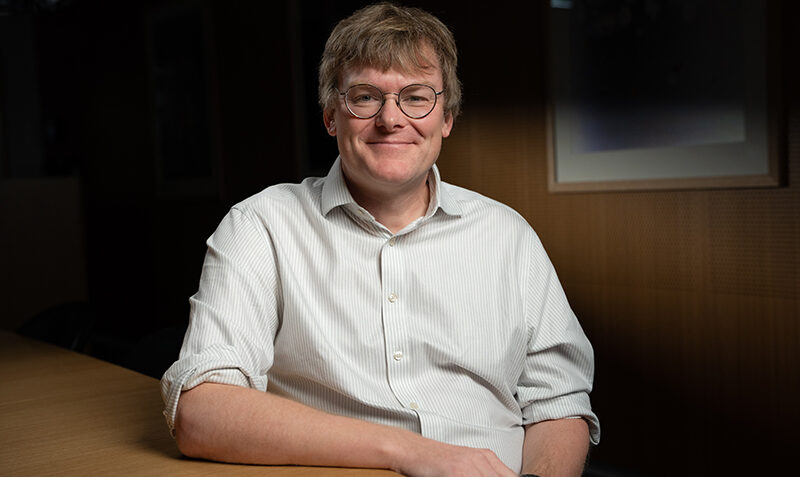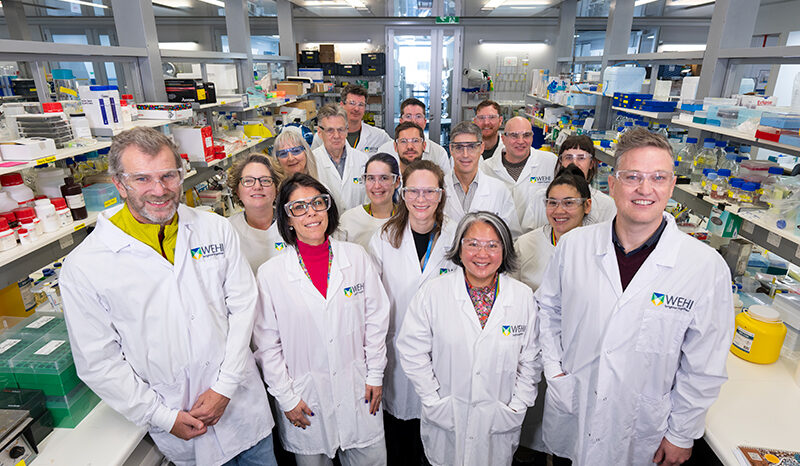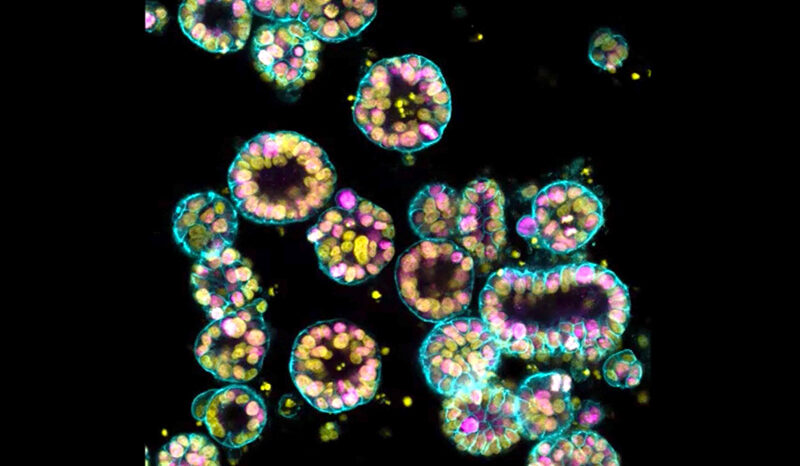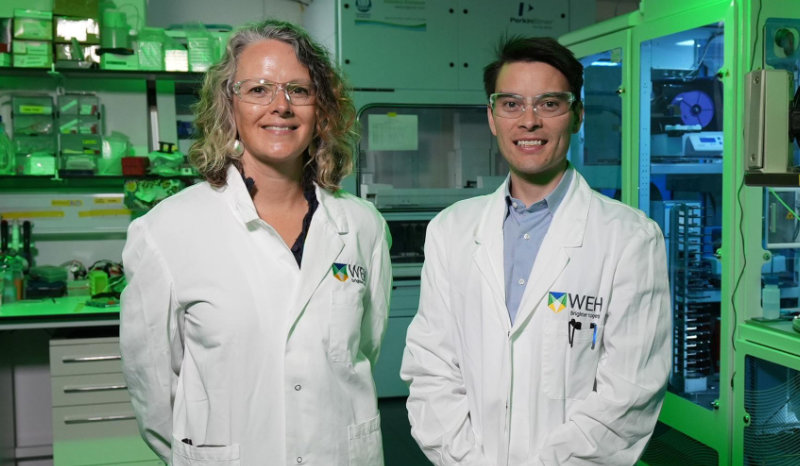Prof Komander joined WEHI in 2018 to start the first ubiquitin-focused research division in Australia, following a career in structural biology and biochemistry in Germany and the UK.
He is credited for uncovering how broad and important the ubiquitin system is, highlighting the power of ubiquitin signalling, and for helping to unravel fundamental discoveries in a variety of research fields.
Prof Komander said he was grateful and humbled to be elected a Fellow of the Royal Society.
“Having grown up scientifically in the UK, I have seen first-hand what impact the Fellowship had on some of my mentors, leading to some fresh focus on the big picture and the big questions,” he said.
WEHI director Professor Ken Smith said joining the Royal Society and its 350-year legacy of advancing science was a wonderful recognition of Prof Komander’s achievements.
“For almost two decades, David has dedicated his career to untangling different ubiquitin signals and pathways, growing our collective understanding of this critical cellular process,” said Prof Smith.
“David is an exemplary researcher who leads a globally recognised ubiquitin lab, and a highly regarded member of our team here at WEHI.
“We could not be more proud of all he has achieved – and the discoveries yet to come.”
Prof Komander’s work has uncovered new drug targets for neurodegenerative diseases, significantly expanding our understanding of Early Onset Parkinson’s Disease and its link to two key proteins: PINK1 and Parkin.
In 2021, Prof Komander’s team produced a ‘live action’ view of PINK1 which showed how the protein progresses from when it is initially made, to being activated and functional. The work provided fundamental insights into Parkinson’s disease.
His work on PINK1 and Parkin has also paved the way for developing therapeutic agents that can ‘switch on’ these proteins to eventually treat Parkinson’s disease – an incurable condition that affects an estimated 220,000 Australians.










